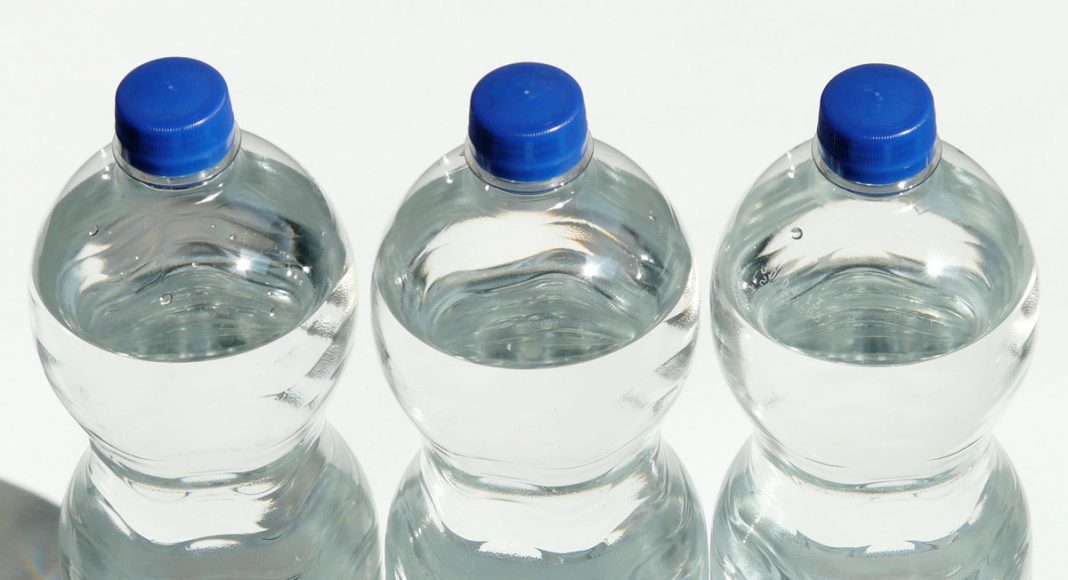It’s never to early to get in on the environmental wave. In fact, it might even be too late, but let’s try not to think about that too much.
Preventing the expansion of climate change and taking care of the world’s resources is a priority. Despite the fact that 2018 was one of the the hottest years on record and that most people believe in or have some sort of awareness of global warming, most of us don’t take the extra step and commit to producing less waste and toxic emissions.
The topic of world health is overwhelming and not easy to approach. While all the information is readily available, it’s hard to understand if you aren’t an expert, but there are manageable ways of doing your part for the planet. Aside from voting for politicians that provide solutions and believe in climate change, you can also do small everyday things that will take a load off the planet. Check out some of our favorites.
Buy a reusable water bottle
Millions of plastic bottles are sold on a day to day basis throughout the world, polluting the oceans, killing marine life and creating large amounts of waste. National Geographic reports that every hour there are over 2.5 million plastic bottles thrown away.
Every hour, 2.5 million plastic bottles are thrown away. My New Year’s Resolution is to carry a reusable water bottle instead of a plastic one. #ichooseplanet Take the pledge and pass it on. https://t.co/QKPZo5gA8j pic.twitter.com/R0KAgd7L47
— Nat Geo UK (@NatGeoUK) December 28, 2018
https://giphy.com/gifs/hulu-fox-the-mindy-project-26uf4uFMIilb8n6WQ
RELATED: Airplane Turbulence Is Going To Suck Thanks To Global Warming
By carrying around your own water bottle you’ll save money and reduce plastic waste. To take things further you can also avoid straws, only using them when necessary.
Be mindful of how you use water
Everything you can do helps, from spending less time in the shower, to closing the tap when you’re brushing your teeth. You can also buy an energy efficient shower head in an accessible price which helps manage your water.
Reduce the amount of paper you use
While it’s hard to completely stop using paper, there are dozens of things you can do to manage how much of it you use. Opt out of junk mail, go paperless on bank statements and keep track of the amount of paper towels and napkins you use.
https://giphy.com/gifs/paper-found-dispenser-7SW4InesxP7Rm
Avoid eating meat
Industries that process lamb and beef produce greenhouse gas emissions in high amounts, so reducing the amount of meats you consume, at least once a week, can help the environment in one way or another. Dale Bryk, strategic advisor of the climate and clean energy program at the Natural Resources Defense Council, spoke with Mashable and explained that initiatives like Meatless Mondays are looking to create awareness in the food industry, hopefully making these businesses invest in options that don’t pollute the planet and that don’t contribute to climate change.
Commit to improving your #kidneyhealth in the #NewYear by committing to #MeatlessMonday. Learn more about why @nkf promotes eating more #plantbased foods for kidney health at: https://t.co/4blyzrYyDD pic.twitter.com/kqNGK5RFDo
— Meatless Monday (@MeatlessMonday) January 3, 2019
RELATED: The Temperature In The Pacific Ocean Is Changing The Weather In Southern California
Learn about composting
Instead of throwing away all of your food waste (which gets sent to a landfill and ends up producing tons of greenhouse gases) you can compost, which can be used as natural fertilizer. You can learn to make your own compost pile or you can purchase a compost bin. If you’d rather not have any food leftovers near your home, you can research drop off sites in your area or sign up for services that provide this service for you.
https://giphy.com/gifs/ifc-portlandia-watermelon-carrie-brownstein-l3fQijPPLmEpdEQIo
Explore different methods of transportation
Vehicles are a big problem for our air even if some of us don’t have easy access to public transportation or the luxury of being able to walk everywhere. If you live somewhere where you can walk, ride a bike or take the subway, take advantage of this. By using these options more regularly you’ll stay more active and contribute to a less polluted environment.
Get to know thrift stores and second hand clothing
According to Nature’s Path 1 kg of fabric generates 23 kg of greenhouse gases, so rapidly purchasing and discarding clothes only harms the environment. Consider taking better care of your clothes and think twice before you shop. When you have to get rid of clothes consider donating them instead of throwing them in the trash.
https://giphy.com/gifs/adam-levine-blake-shelton-maroon-5-hnl83xVQxpqJG


